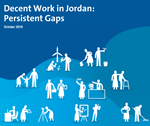|
|
|
|
|
|
The GCSPF submitted a written statement to the Commission on the Status of Women (CSW63). The priority theme of the CSW63 is social protection systems, access to public services and sustainable infrastructure for gender equality and the empowerment of women and girls. The CSW63 will take place at the United Nations Headquarters in New York from 11 to 22 March 2019. Read more
|
|
|
|
|
|
|
|
|
|
|
The issues of physical violence against women and lack of access to sexual and reproductive rights have given international visibility to the gender agenda in the last few years. Yet a third issue, closely related to the previous two, is slowly becoming more relevant: the economic rights of women.
All around the world, women’s poverty rates are often higher than men’s.
Given its crucial role in the global economy, the G20 has vast potential for contributing to gender equality in this regard. Increasing women’s labor force participation was one of the goals set by the 2014 multilateral forum – the leaders agreed to aim to reduce the gap in labor force participation rates between men and women by 25% by 2025. Since then, the topic has grown in stature in the G20 thanks to the creation of an engagement group focused on women’s economic empowerment: the Women 20. Read more
|
|
|
|
|
|
|
|
|
|
|
 |
Jordan – the first Arab country ever to sign a commitment agreement with the ILO, in 2006 – has, to date, failed to achieve broad application of decent work standards in the country's labour market, with working conditions even deteriorating in some sectors.
While many labour policies currently in place were developed on purely ideological grounds, all other channels and devices conducive to the development of fair and effective labour policies have remained wrapped in red tape. It's illogical to envisage any improvements to working conditions where there is no space for social dialogue and tripartite negotiations between independent parties.
The effects of regional instability on the economy and its ability to generate new jobs, as economic growth rates have steadily declined to 2% over the past 5 years. In addition, the influx of Syrian refugees and mostly Egyptian migrant workers has produced a ‘race–to–the-bottom’ effect in some sectors, resulting in the further deterioration of average working conditions. Read more
|
|
|
|
|
|
|
|
|
|
|
A shift from social protection as charity to a right is necessary both to tackle stigmatisation of persons with disabilities and to meet the Sustainable Development Goals, a London event on disability and social protection has heard.
Disability-Inclusive Social Protection: A Time for Action, co-hosted by Development Pathways, Leonard Cheshire, the London School of Hygiene and Tropical Medicine and HelpAge International, brought together key institutions working on research linking social protection and disability, to discuss the key challenges persons with disabilities face in accessing social protection in low- and middle-income countries. The expert panel in their presentations shared case studies of some policy actions countries have taken in order to overcome some of these barriers, and offered recommendations in line with the commitments countries agreed to at the Global Disability Summit. See the video here and the presentations here
|
|
|
|
|
|
